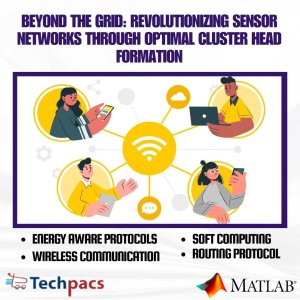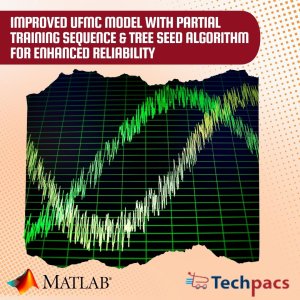Optimizing Low Contrast Image Enhancement with Hybrid GWO-GA Algorithm and Kuwahara Filter
Problem Definition
Image processing plays a crucial role in the fields of engineering and computer science, with contrast enhancement being a key technique within the domain of image enhancement. Over the years, numerous methods for contrast enhancement have been developed and utilized. However, a review of recent literature reveals the existence of various limitations and problems within this area. Optimization techniques have been commonly employed, with one particular approach showing higher efficiency compared to others. Despite these advancements, there is still a need for a novel approach that can address the existing issues and ultimately lead to the enhancement of image quality.
This necessitates the development of a new solution that can overcome current challenges and produce high-quality images in a more effective manner.
Objective
The objective of this research project is to develop an optimized brightness preserving histogram equalization approach that incorporates the use of plateau limits obtained through a hybrid of Grey Wolf Optimization (GWO) and Genetic Algorithm (GA) optimization techniques. By replacing the previous optimization approach with GWO and hybridizing it with GA, the aim is to overcome the limitations of existing methods and produce high-quality images through efficient contrast enhancement techniques. The project seeks to address current research gaps in image processing and contribute to advancements in the field of image enhancement.
Proposed Work
In this research project, the focus is on addressing the research gaps identified in the field of image processing, particularly in the domain of contrast enhancement. The literature review highlighted the importance of contrast enhancement techniques and the need for more efficient methods to improve the quality of images. The proposed work aims to develop an optimized brightness preserving histogram equalization approach that incorporates the use of plateau limits obtained through a hybrid of Grey Wolf Optimization (GWO) and Genetic Algorithm (GA) optimization techniques. The choice of using GWO as the optimization technique is based on its advantages such as preventing local minimal, high convergence speed, derivative-free nature, simplicity in implementation, and high flexibility. By replacing the previous CS optimization approach with GWO, it is expected that the proposed approach will overcome the limitations of the existing methods and improve the overall quality of images.
To further enhance the efficiency and effectiveness of the optimization process, the concept of hybridization is introduced in the proposed work. Hybridizing GWO with GA can help in overcoming the drawbacks of GWO and capitalize on the strengths of both algorithms within a single framework. The hybrid GWO-GA approach, along with the implementation of the kuwahara filter, is expected to yield significant improvements in image quality. By combining these optimization techniques with the filtering process, the proposed approach can achieve optimal results in contrast enhancement, thereby contributing to the advancement of image processing techniques. Through this comprehensive and innovative approach, the project aims to address the current research gaps and bring about significant improvements in the field of image enhancement.
Application Area for Industry
This project can be used in various industrial sectors such as healthcare (medical imaging for diagnosis and treatment planning), manufacturing (quality control and defect detection in production processes), surveillance (security and monitoring systems), agriculture (crop monitoring and yield prediction), and satellite imaging (environmental monitoring and disaster management). The proposed solutions of using the GWO-GA hybrid optimization approach along with the Kuwahara filter can be applied to address specific challenges faced by industries in improving image quality, enhancing feature extraction, and increasing the efficiency of image processing techniques. By implementing these solutions, industries can benefit from improved accuracy, faster processing times, and more reliable results, ultimately leading to cost reduction and better decision-making processes.
Application Area for Academics
The proposed project on enhancing contrast in images using a hybrid GWO-GA approach has the potential to significantly enrich academic research, education, and training in the field of image processing. This project introduces a novel method that combines the strengths of Grey Wolf Optimization (GWO) and Genetic Algorithm (GA) for optimizing image contrast enhancement, thus addressing the limitations of previous approaches.
This project can serve as a valuable resource for researchers, MTech students, and PhD scholars in the field of image processing. By providing a detailed methodology and code implementation for the hybrid GWO-GA approach, researchers can explore innovative research methods and simulations for enhancing image quality. The project's focus on optimization techniques and hybridization can offer new insights into efficient data analysis and image enhancement strategies.
The relevance of this project lies in its potential applications in various research domains, such as computer vision, pattern recognition, and artificial intelligence. Researchers can utilize the code and literature provided in this project to conduct comparative studies, evaluate algorithm performance, and explore the effectiveness of hybrid optimization techniques in image processing.
Furthermore, the project's emphasis on utilizing GWO and GA algorithms along with the kuwahara filter for contrast enhancement opens up new possibilities for achieving high-quality image results. This methodology can be adapted and extended to different image processing tasks, offering a practical and innovative approach for researchers and students to explore.
In conclusion, the proposed project on contrast enhancement using a hybrid GWO-GA approach has the potential to advance academic research, education, and training in the field of image processing.
By providing a comprehensive framework for optimization and image enhancement, this project offers a valuable resource for exploring new research methods, simulations, and data analysis techniques within educational settings.
Reference future scope: The future scope of this project includes exploring the application of the hybrid GWO-GA approach in real-time image processing, developing new hybridization strategies with other optimization algorithms, and integrating machine learning techniques for adaptive contrast enhancement. Researchers can further investigate the potential of this approach in solving complex image processing problems and extending its applicability to various domains within computer science and engineering.
Algorithms Used
The project utilizes three main algorithms: Grey Wolf Optimization (GWO), Genetic Algorithm (GA), and Dual-Queue Heterogeneous Enhancement of Particle Swarm Optimization with Levy (DQHEPL).
Grey Wolf Optimization (GWO) is utilized for optimization tasks due to its advantages such as local minimal prevention, high convergence speed, simplicity in implementation, and versatility. By replacing the previous CS optimization approach with GWO, the project aims to overcome limitations and enhance efficiency in optimization processes.
To further improve the optimization process and overcome potential drawbacks of GWO, the concept of hybridization is introduced. Hybridization involves combining two different optimization algorithms to solve a single objective function, allowing the benefits of both algorithms to be utilized within a single framework.
In this project, GWO is hybridized with Genetic Algorithm (GA) to enhance the optimization process and achieve more efficient results.
Additionally, the Dual-Queue Heterogeneous Enhancement of Particle Swarm Optimization with Levy (DQHEPL) algorithm is used in conjunction with GWO-GA hybridization and kuwahara filter to further improve image quality and optimization outcomes.
By integrating these algorithms and techniques, the project aims to achieve higher accuracy, efficiency, and overall quality in image processing tasks and optimization processes.
Keywords
image processing, contrast enhancement, optimization techniques, GWO, Grey Wolf Optimization, CS optimization, hybridization, genetic algorithm, kuwahara filter, image quality improvement, image enhancement algorithms, image analysis, histogram equalization, brightness preservation, image brightness, image histogram, image enhancement efficiency, image enhancement optimization, image enhancement methods.
SEO Tags
Image Processing, Contrast Enhancement, Optimization Techniques, Grey Wolf Optimization, Genetic Algorithm, Kuwahara Filter, Image Quality Improvement, Image Enhancement Algorithms, Hybrid Optimization, Image Analysis, Histogram Equalization, Brightness Preservation, Research Gaps, Novel Approach, Research Scholar, PHD Research, MTech Project, Image Enhancement Efficiency
| Shipping Cost |
|
No reviews found!

















































No comments found for this product. Be the first to comment!